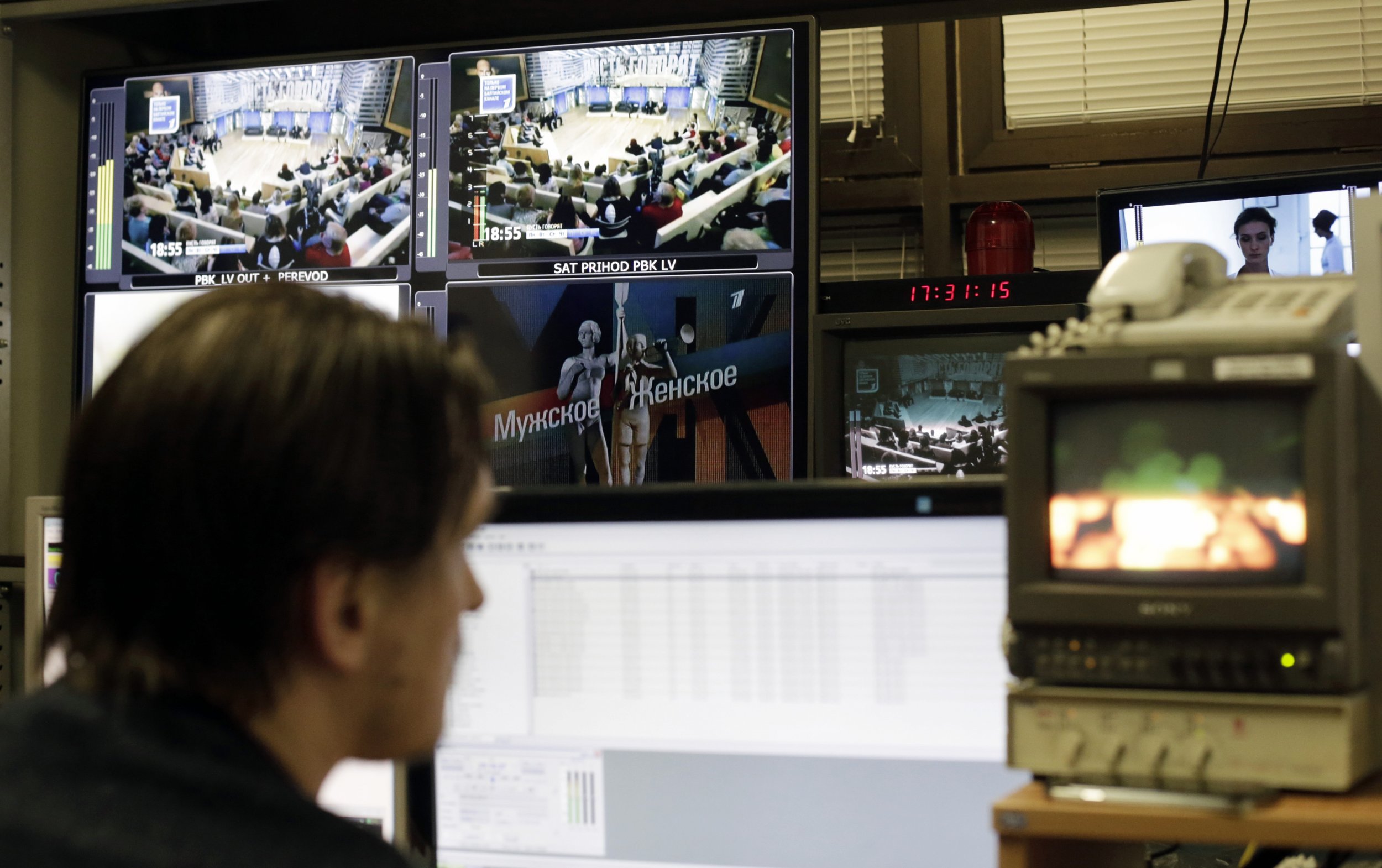
The European Union has launched a campaign this week aimed at tackling the formidable flow of propaganda from Russia, which many European leaders fear is destabilising the continent.
Heads of government met in Brussels yesterday to ask Federica Mogherini, the EU's foreign policy chief, to draw up a detailed plan to counter Russia's "disinformation campaigns" by June. Before then, the EU will launch a joint task force, currently known as 'Mythbusters' which will monitor Russian media to identify falsehoods and issue corrections.
While exact details of the initiative are unknown, the campaign is expected to include efforts to produce and share Russian-language broadcast programming, particularly for ethnic Russians living in ex-Soviet states, where Russian state broadcasters have far bigger production budgets than local media stations.
European leaders, particularly in the Baltic States, are increasingly concerned that Russia's so-called "weaponisation of information" is not only ensuring support for Putin in his own country, but also among ethnic Russians throughout Europe.
This week, Latvia's interior minister said in an interview that the country's security is at risk from Russian-funded groups waging an online "information war" which is making the country's Russian minority believe it is being persecuted. The Kremlin-backed channel, Russia Today (RT), was found guilty last November of breaching UK broadcasting regulations for its impartial coverage of the Ukraine crisis. Last year RT suggested that Ukraine was to blame for the shooting down of Malaysia Airlines flight MH17, prompting one of its London correspondents to resign, although an Ofcom inquiry into RT's reporting did not find any issues warranting a bias investigation.
According to David Clark, senior research associate at the Foreign Policy Centre and former special advisor to the foreign secretary, Robin Cook, the Russian propaganda campaign is formidable, and effective. He believes it's possible that Russia's Federal Security Service have formally employed people as part of an orchestrated attempt to fill cyberspace with pro-Russia comment.
"It's very serious threat," he says. "Propaganda played a significant role in the Ukraine conflict. Behind the scenes it's plausible that Russia has thousands of people working on social media and on news websites, making interventions and tweeting in order to put the Russian message across."
While the European Union's campaign is in the early stages, other countries have begun to organise their own response. This September Estonia will launch a television channel specifically aimed at the quarter of its population who speak Russian. Latvia, home to the EU's largest Russian-speaking minority, has also proposed publicly funded pan-Baltic channels. Ukraine is just about to launch its own television channel, called Ukraine Tomorrow, to counter the strong stream of pro-Russian news from RT.
In February, 35,000 Ukrainians reportedly signed up to join Ukraine's 'information army' - a new project drafted by the country's Ministry of Information which seeks to combat the "Russian occupation on the information front".
However, there are concerns that the EU initiative could descend into a tit-for-tat type scenario, simply prompting an emergence of anti-Russian propaganda which plays into Putin's hands.
"I am very sceptical that anything set up in this way will be taken seriously," says Clark. "It doesn't work because it promotes cynicism, and puts us on the same level as Putin, which he is very comfortable with, as he wants the world to see the west adopting the same tactics as him."
"You can produce as much counter-propaganda as you like, and match Russia spin-for-spin, but it won't make any difference if we make mistakes that Russia can exploit," he continues. "It is absolutely imperative that we are not seen to be matching Russia by adopting Russian tactics."
But a number of analysts also fear that the EU has woken up to the threat from Russia too late, something Clark describes as an understatement. "The west is struggling to catch up on a range of threats from Russia, this is just one of them," he says.
Correction: This piece has been updated to reflect the fact that Ofcom conducted an inquiry into RT's coverage of MH17 but did not find any issues warranting a bias investigation.
Uncommon Knowledge
Newsweek is committed to challenging conventional wisdom and finding connections in the search for common ground.
Newsweek is committed to challenging conventional wisdom and finding connections in the search for common ground.
About the writer
Felicity is a reporter for Newsweek Europe based in London. Twitter: @FelicityCapon
To read how Newsweek uses AI as a newsroom tool, Click here.








